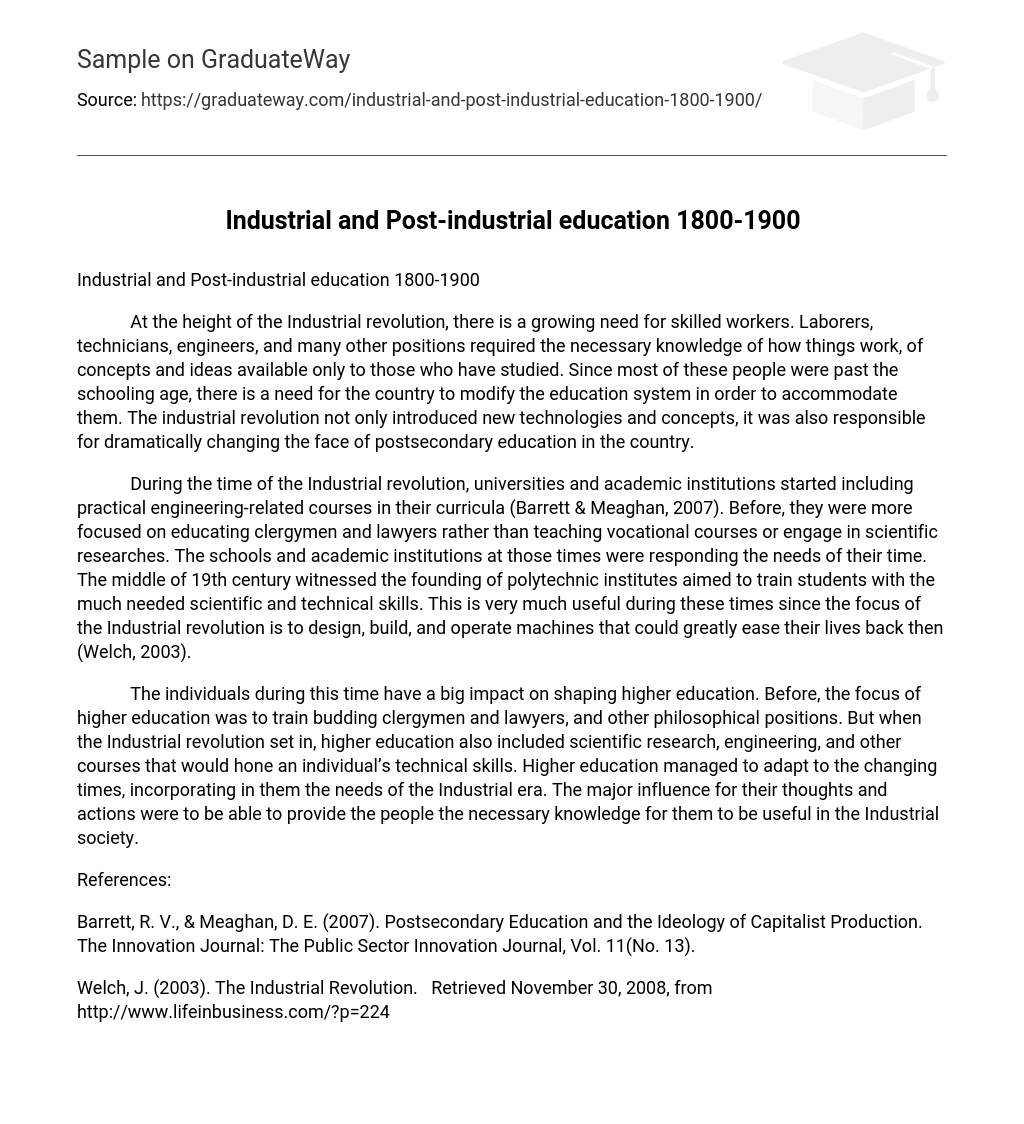At the height of the Industrial revolution, there is a growing need for skilled workers. Laborers, technicians, engineers, and many other positions required the necessary knowledge of how things work, of concepts and ideas available only to those who have studied. Since most of these people were past the schooling age, there is a need for the country to modify the education system in order to accommodate them. The industrial revolution not only introduced new technologies and concepts, it was also responsible for dramatically changing the face of postsecondary education in the country.
During the time of the Industrial revolution, universities and academic institutions started including practical engineering-related courses in their curricula (Barrett & Meaghan, 2007). Before, they were more focused on educating clergymen and lawyers rather than teaching vocational courses or engage in scientific researches. The schools and academic institutions at those times were responding the needs of their time. The middle of 19th century witnessed the founding of polytechnic institutes aimed to train students with the much needed scientific and technical skills. This is very much useful during these times since the focus of the Industrial revolution is to design, build, and operate machines that could greatly ease their lives back then (Welch, 2003).
The individuals during this time have a big impact on shaping higher education. Before, the focus of higher education was to train budding clergymen and lawyers, and other philosophical positions. But when the Industrial revolution set in, higher education also included scientific research, engineering, and other courses that would hone an individual’s technical skills. Higher education managed to adapt to the changing times, incorporating in them the needs of the Industrial era. The major influence for their thoughts and actions were to be able to provide the people the necessary knowledge for them to be useful in the Industrial society.
References:
Barrett, R. V., & Meaghan, D. E. (2007). Postsecondary Education and the Ideology of Capitalist Production. The Innovation Journal: The Public Sector Innovation Journal, Vol. 11(No. 13).
Welch, J. (2003). The Industrial Revolution. Retrieved November 30, 2008, from http://www.lifeinbusiness.com/?p=224





